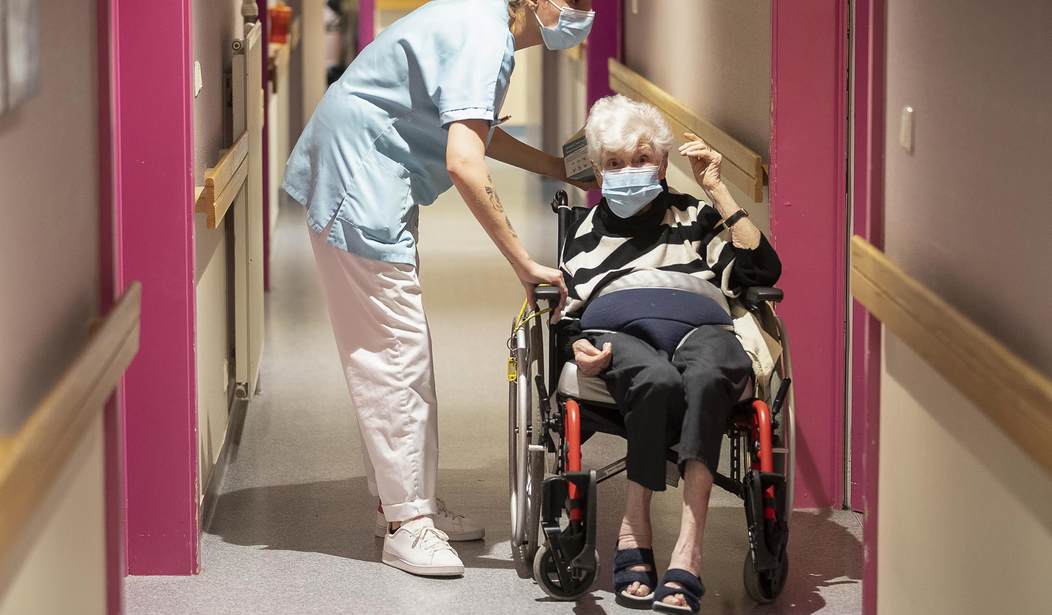We take care of our elderly parents so well that we often leave them with no reason to live.
Soon to be former president Joe Biden is only eight months older than Sir Mick Jagger. As has been plain to all, the outgoing president is slowing down and showing signs of reduced cognitive capabilities. Mick Jagger, on the other hand, is still running across world stages as if he was still twenty-one years old. The Stones’ frontman did have some heart issues a few years back, but he is still quite active, wherever he and the band perform.
Why some people keep their strength and/or faculties in old age while others experience decline is a complex subject. Genes, nutrition, family, job, surroundings, life experiences and other factors may all play some role in determining who ages successfully and who spends his or her golden years in rehab hospitals or nursing homes. The subject is important as Western countries are aging, and the once-rare age of 100 is being reached routinely. A college roommate who specializes in geriatric psychiatry has dedicated his career and writings to preventing the onset of dementia.
While the subject of our aging parents losing skills and abilities is both difficult and scientifically complex, there would appear to be one unintentional factor that may contribute to the decline of our elderly. I readily admit that my pool of cases is quite limited, but one factor has been clear to me for the past decade. In short, we are loving our parents to death.
As we age, we lose a step. It often becomes clear to those around us that we are losing abilities that we once took for granted. Driving. Going to the supermarket alone. Handling money. Cooking. Cleaning. What an elderly person was able to do last week suddenly becomes impossible today. The elderly person is generally the last to admit the loss of ability, as it is one more sign that the clock is running, and that he is now in the fourth quarter of the game. It is very tricky for family members, doctors, and caregivers to know what an elderly person can and cannot do. So what is the common response: to make their world smaller. Instead of allowing our elderly folks to do any and everything that they still can accomplish, we immediately preempt them and take from them skills that they still have. It is a Spiral of Doom as their now reduced world keeps getting smaller and smaller until they lose the opportunity and the ability to do much of anything. We think that we are doing them a favor by shopping and cooking for them, but if they are still able to do the same—even with some difficulty—we are actually pushing them towards losing other abilities. Once they are convinced that they can no longer drive, cook, work out or shower by themselves, then the next step is to no longer have anything to live for. The loss of skills is always unidirectional.
Recommended
I saw this kind of spiral both for my parents and for my in-laws. In three of the four cases, they suffered some type of illness such as a broken hip or a severe illness. Instead of being brought back to their original lives after their recovery, they became habituated to being the patient. They rarely left the house. All of the chores and responsibilities were assumed by others, either family members or paid caretakers. Their worlds became smaller and smaller until they finally passed away from “old age.” My father was a bit different. He insisted on living in his house—alone—though he would not know the day of the week or the month of the year. Caretakers who would check in on him for a few hours every day did the shopping as he lost his confidence in driving, though the state of Nevada did not and issued him a new driver’s license at the age of 95. He showered by himself, often did some cooking, worked on the computer, listened to music and watched TV. He would not go out alone, but during our visits to Vegas, we took him out to various sites and attractions in and around the city. He loved it. At the age of 96, he fell ill and two months after entering the hospital, he passed away. The other three elders suffered years of decline and not leaving home.
I wish that we could say that the difference between 81-year-old Mick Jagger and Joe Biden came solely down to the former’s peripatetic lifestyle, while Joe spent the 2020 election in his basement and rarely went out. There are many factors that contribute to our continued good health or, God forbid, decline. Knowing what elderly parents can and cannot still do is not an exact science, and our tendency is to assume their responsibilities for them. The question is if we are making their world too small too soon. If a parent does not yet need live-in help, is bringing in a person to live with him to his benefit or detriment? Once cooking, washing, and other responsibilities are removed, they never come back. Those closest to my father were terrified that if he kept cooking—something that he always loved to do—he could easily leave the gas range lit and burn down the house.
Every elderly situation is unique. There are 100-year-old great grandparents skydiving out of airplanes, while, as we see, an 81-year-old Joe Biden is clearly in physical and mental decline. Many families face the challenges of helping their aging parents from afar. My only suggestion is that if there is something that they still can do without risking their or others’ lives, then one should do his best to allow them to keep doing it. Swimming, going for walks, going out once a week with friends—once those activities stop, they generally never come back. Out of love, we want to make our parents’ lives as comfortable and pleasant as possible. Out of love, we should try to determine if they can still do some of their activities safely and let them do as much as they still can. It might add meaningful years to their lives. Every person at all ages needs a reason to get out of bed in the morning. Having a purpose in life makes life that much more worth living.

























Join the conversation as a VIP Member